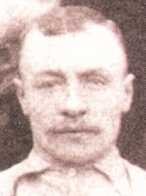James Stott
 | |||
| Personal information | |||
|---|---|---|---|
| Date of birth | 1871[1] | ||
| Place of birth | Darlington, England | ||
| Date of death | 8 October 1908 | ||
| Place of death | Newcastle-upon-Tyne, England | ||
| Playing position | Winger | ||
| Senior career* | |||
| Years | Team | Apps† | (Gls)† |
| 1887-1891 | South Bank | ||
| 1891-1893 | Middlesbrough | 0 | (0) |
| 1893-1894 | Liverpool | 16 | (14) |
| 1894-1895 | Grimsby Town | 29 | (4) |
| 1895-1899 | Newcastle United | 117 | (9) |
| 1899-1900 | Middlesbrough | 1 | (0) |
| * Senior club appearances and goals counted for the domestic league only. † Appearances (Goals). | |||
James Stott (born 1871[1]) in Darlington, died 8 October 1908 in Newcastle-upon-Tyne) was a professional footballer of the late 19th century. Primarily a winger, but able to play in a number of positions, he began his career as an amateur with spells at South Bank and Middlesbrough before signing his first professional contract with Liverpool in 1893. He only had one season at Anfield - Liverpool's first in the Football League, but in doing so won the Second Division championship and ended as the club's top scorer with an impressive 14 goals in 17 games. Despite this, though, he was not a first team regular, and in 1894 he moved to Grimsby Town. His spell there was also ended after a year, returning to the north-east to join Newcastle United, where he captained the side to a shock F A cup victory at Preston North End[2] and promotion from the Second Division in 1898. After one year in the First Division he returned to Middlesbrough, but couldn't get into the first-team, and he retired early in 1900. Described as a snappy dresser, but with a short temper (on and off the pitch), he later worked as a licensee. Sadly, however, he contracted a brain tumour, and died in a lunatic asylum in 1908.
Notes
- ↑ 1.0 1.1 Other sources list Stott as being born in 1870.
- ↑ Giant Killers 1898